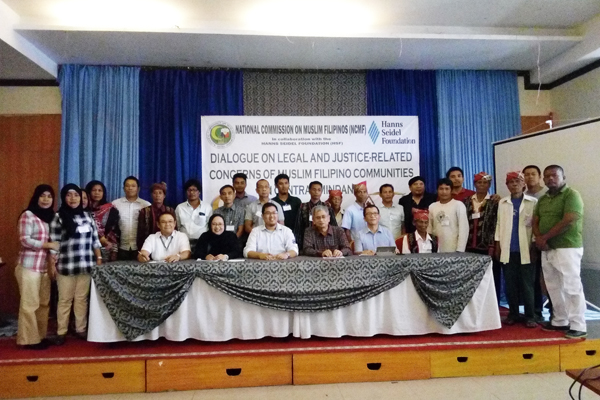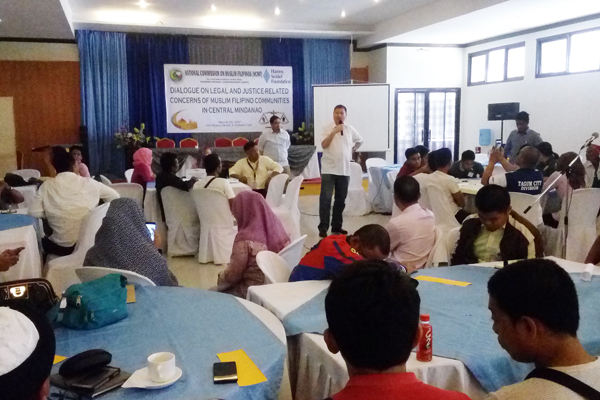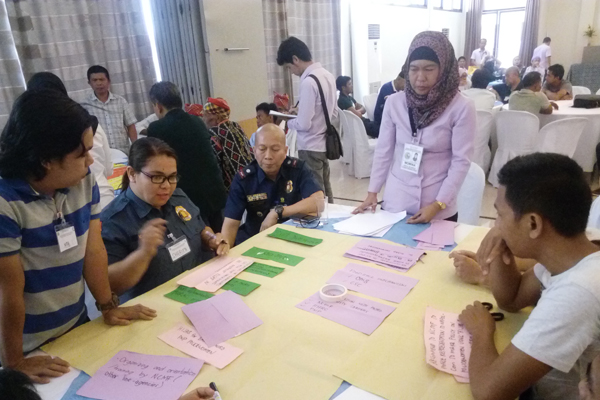National Commission on Muslim Filipinos (NCMF)
Philippines’ NCMF conducts “Community Dialogue/Forum with Muslim Filipino Community Leaders

HSF
The Hanns Seidel Foundation provided support to this event where the NCMF conducted a dialogue/forum with Muslim community leaders and local government officials to discuss community-based issues and concerns affecting Muslim communities in Central and Southern Mindanao.
Issues and concerns relate to political governance, local participation, local government unit consultations, police/army interventions that may infringe on civil/legal rights, and legal assistance for Muslim communities. As the NCMF is the Philippine government agency mandated to preserve and develop the culture, tradition, institutions, and well-being of Muslim Filipinos in conformity with the country's laws and in consonance with national unity and development, the event allowed the former to promote and explain its mandate to its stakeholders.

HSF
The one-day consultation was conducted using a modified “Open Space Technology” approach where everybody was allowed/encouraged to contribute ideas to the discussion as a member of a discussion group, unlike a standard forum discussions where the participants only address their questions to a panel of experts at the head table. NCMF provided facilitators for each of the discussion groups. Afterwards, results of small group discussions were presented and synthesized into key concerns towards the end of the activity. Among the key discussion topics were those related to: political governance; local participation and governance; legal assistance and access to justice; local conflict resolution; police, military, and human rights concerns; and the on-going peace process between the national government and the Moro Islamic Liberation Front.
During the dialogue sessions, among the issues that stood out were the following:
- Addressing the Moro communities’ limited access to the justice system (inclusive of general services, obtaining permits and licenses, personal documentation, police-related and criminal justice procedures, etc.).
- Expanding information dissemination activities as these relates to the legal rights of Muslim Filipinos to law students, community leaders and social workers in Muslim communities as they serve as the immediate “source of legal advice” in the community given the limitations of the national and local government agencies.
- Conduct of intra-Moro community discussions to harmonize the application of laws and local conflict resolution mechanisms as various Moro communities have different norms and protocols in resolving disputes inclusive of settlement and punishment mechanisms.
- Involving local Muslim communities’ representatives in the local government units’ (LGUs) crafting of laws and ordinances, decision-making, and in the electoral process, and corresponding sensitivity of LGUs to specific socio-economic and cultural characteristics of Muslim communities.
- Establishing a credible halal certification system for local provision and sale of goods and services.

HSF
With the exception of those who converted to Islam, Filipino Muslims are called Moros who predominantly reside in the island of Mindanao and the Sulu Archipelago. The Moros, which consist of 13 ethno-linguistic groups make up about 5% of the estimated national population of over one hundred million. As a result of historical social-economic and political injustices committed against them, the Moro population waged a rebellion against the national government in the late 1900s. Presently, the two biggest Rebel groups, the Moro National Liberation Front (MNLF), and the Moro Islamic Liberation Front (MILF) have expressed their commitment to peace and to finally ending the 47-year old insurgency.
The National Commission on Muslim Filipinos will continue the conduct of regular dialogue with their stakeholders on common legal and justice-related issues and concerns with succeeding fora having a more defined structure. Issues discussed will be further analyzed and will constitute input in possible amendment of existing, and crafting new national and regional legislation or ordinances and, input to possible amendment of existing and crafting new national and regional economic development policies, programs, and projects which will have a positive effect on Muslim Filipinos.
